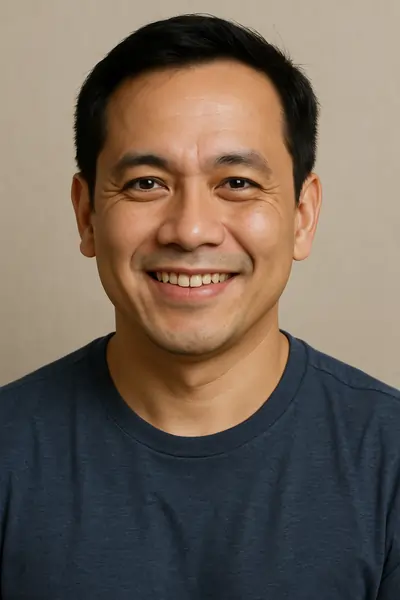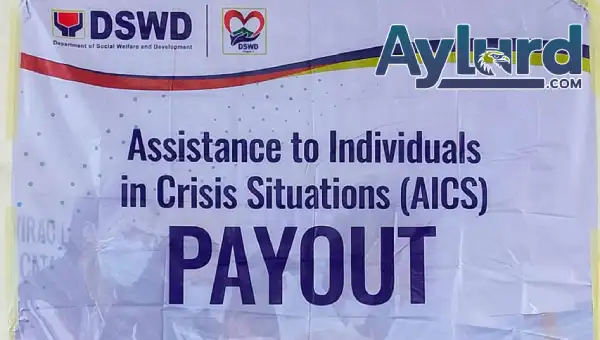While members of the House of Representatives actively support programs like MAIP, AICS, TUPAD, and the Ayuda Program, it’s important to clarify that congressmen cannot directly provide financial, medical, or burial assistance. These responsibilities fall under the Executive Department, particularly through agencies like DSWD and DOH. Learn more about the proper roles of lawmakers and government agencies in assisting Filipinos. 🇵🇭⚖️
Clarifying the Congressmen’s Role in Assistance
In recent years, certain lawmakers have been accused of distributing financial, medical, and burial assistance to constituents. While these actions may seem beneficial, they blur the lines between legitimate aid and political patronage. However, the law strictly prohibits congressmen from providing such aid directly to constituents.
Philippine Constitution on the Congressmen’s Role in Assistance in particular
According to Article VI, Section 1 of the Philippine Constitution, the Legislative Branch, which includes Congress, is tasked with creating laws to benefit the people. This provision underscores that lawmakers are primarily responsible for making laws, not administering aid directly. Congress cannot involve itself in distributing social welfare assistance, as this is the job of the Executive Branch, particularly through agencies like the DSWD, DOLE, and DOH.
Section 1, Article VI of the Philippine Constitution states:
“The legislative power shall be vested in a Congress of the Philippines which shall consist of a Senate and a House of Representatives.”
While Congress has the power to pass laws, the Executive Department implements them, including distributing public funds for assistance.
Republic Act No. 3019 – Anti-Graft and Corrupt Practices Act
Republic Act No. 3019, commonly known as the Anti-Graft and Corrupt Practices Act, further clarifies the restrictions on public officials, including congressmen. Section 3(e) of the Act prohibits any public official from giving, directly or indirectly, any assistance that could be seen as a means of coercing or influencing the public for political gain. This law reinforces the separation of powers between the legislative and executive branches and maintains the integrity of the democratic system by ensuring political patronage is avoided.
Government Assistance Programs: MAIP, AICS, TUPAD, AKAP, and More
Although congressmen cannot provide direct financial, medical, or burial assistance, they can support government-led programs aimed at helping Filipino citizens. Some of these programs include:
1. Medical Assistance to Indigent Patients (MAIP) Program
The DOH (Department of Health) manages the Medical Assistance to Indigent Patients (MAIP) Program. This program helps provide financial aid to indigent patients who require hospitalization, medical consultations, and other essential medical treatments. MAIP is crucial in ensuring that individuals unable to pay for necessary medical services still receive the care they need.
2. Assistance to Individuals in Crisis Situations (AICS)
The DSWD (Department of Social Welfare and Development) administers the AICS program, which provides financial assistance to individuals and families facing extreme difficulties. This aid can cover medical, burial, and educational expenses. AICS plays an important role in providing relief to vulnerable Filipinos during times of crisis.
3. Tulong Panghanapbuhay sa Ating Disadvantaged/Displaced Workers (TUPAD)
The DOLE (Department of Labor and Employment) manages TUPAD, a program that offers emergency employment to displaced or disadvantaged workers. This initiative provides temporary financial support, helping workers sustain their families while searching for permanent employment.
4. Ayuda para sa Kapos ang Kita Program (AKAP)
The DSWD oversees the Ayuda para sa Kapos ang Kita Program (AKAP), which provides financial support to individuals and families in distress. This program is particularly useful during emergencies, offering immediate relief to those facing economic hardship. AKAP is a vital resource for citizens who need financial assistance due to unforeseen circumstances, such as the loss of employment or natural disasters.
5. Ayuda Program: A Form of Political Patronage
The Ayuda Program has come under scrutiny for being used as political patronage. While Ayuda is intended to provide relief, its distribution has sometimes been misused by politicians to gain favor with constituents. The Executive Department is responsible for ensuring that the Ayuda Program is distributed impartially, without any political motives, and reaches those who genuinely need it.
Why Congressmen Should Not Provide Direct Assistance
There are several key reasons why direct provision of financial, medical, or burial assistance by congressmen is prohibited:
1. Legal Restrictions
The Philippine Constitution and Republic Act No. 3019 clearly state that lawmakers should focus on crafting laws, not distributing aid. Allowing congressmen to distribute assistance would undermine the principle of fair governance and violate the separation of powers. Such actions may influence voters, skewing the democratic process.
2. Conflict of Interest
Allowing congressmen to provide direct aid creates a conflict of interest, as such actions could be perceived as a tool for political gain. Distributing aid to win votes compromises the objectivity of public officials and undermines public trust.
3. Accountability and Transparency
Government agencies like DSWD, DOLE, and DOH have transparent and accountable systems for tracking and ensuring that aid reaches the rightful beneficiaries. These agencies ensure that assistance is distributed properly, whereas direct distribution by lawmakers might lack sufficient oversight, leading to potential misuse.
Proper Channels for Assistance Distribution
Citizens seeking support should always rely on the following official channels:
DOH for MAIP
For Medical Assistance to Indigent Patients (MAIP), individuals should contact the DOH. The DOH provides essential medical assistance to those who cannot afford treatment, ensuring they receive the necessary care.
DSWD for AICS
For AICS (Assistance to Individuals in Crisis Situations), approach the DSWD directly. The DSWD offers financial, medical, and burial assistance to those in need.
DSWD for AKAP
For Ayuda para sa Kapos ang Kita Program (AKAP), which provides financial support to individuals and families in distress.
DOLE for TUPAD and AKAP
For TUPAD, citizens can reach out to the DOLE. TUPAD provides emergency employment.
How Citizens Can Protect Their Rights
To ensure they receive the right aid and avoid exploitation, citizens should:
- Verify claims with official government agencies such as DSWD, DOLE, and DOH.
- Report any improper solicitation of aid in exchange for political support to the COMELEC or the Office of the Ombudsman.
- Participate in local monitoring efforts to ensure transparency in the distribution of aid.
Pros and Cons of Current Policy Enforcement
| Pros | Cons |
|---|---|
| Protects voters from vote-buying and patronage | Enforcement challenges in rural or remote areas |
| Promotes fair and transparent aid distribution | Some citizens may feel that aid is less accessible |
| Strengthens trust in government institutions | Misunderstanding regarding lawmakers’ roles |
Congressmen’s Role in Assistance – Frequently Asked Questions (FAQs)
Can congressmen provide financial or medical assistance directly?
No. These responsibilities belong to the Executive Department, primarily through DSWD, DOLE, and DOH.
How do I apply for government assistance?
Applications should be made through authorized government agencies such as DSWD for AICS and AKAP or DOLE for TUPAD.
What should I do if a politician offers aid in exchange for votes?
Report the incident immediately to the COMELEC or the Office of the Ombudsman.
Disclaimer ⚠️
This article is based on the latest Philippine laws and government policies as of 2025. Readers are encouraged to consult official government sources for the most accurate and updated regulations.
Congressmen’s Role in Assistance | Conclusion
While congressmen continue to play an important role in advocating for programs like MAIP, AICS, TUPAD, and AKAP, it’s crucial to understand that direct assistance remains the responsibility of the Executive Department. By respecting this separation of powers, we can ensure that aid is distributed transparently, fairly, and without political interference. Upholding these principles strengthens trust in government and guarantees that assistance reaches those who need it most.
You May Also Like:

Ken Lurd, born Ken Martin, is a seasoned writer and content creator from the Philippines with over two decades of experience in storytelling, digital media, and creative strategy. Now in his 40s, Ken has built a solid reputation for blending real-life insight with engaging narratives that resonate with Filipino and global audiences alike.
From lifestyle blogs and social commentaries to thought-provoking essays and branded content, Ken’s work reflects depth, authenticity, and a passion for connecting with readers. Whether he’s writing under the name Ken Lurd or speaking at content workshops, his mission remains the same: to inform, inspire, and ignite meaningful conversations.
When he’s not writing, Ken enjoys local travel, coffee-fueled brainstorming sessions, and mentoring up-and-coming creators across the country.
Follow and Subscribe for Daily Updates!Facebook: AyLurdTikTok: @AylurdYouTube: AyLurd



